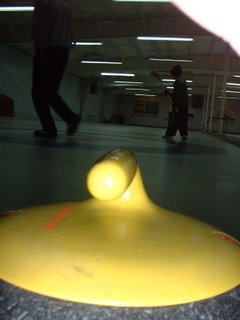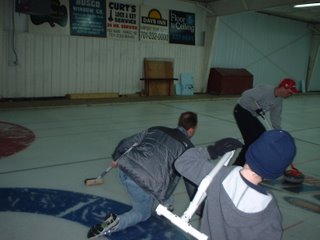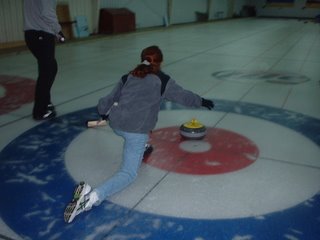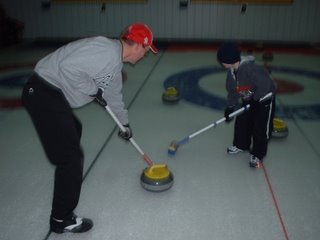01. Bought everyone in the bar a drink
02. Swam with wild dolphins
03. Climbed a mountain04. Taken a Ferrari for a test drive
05. Been inside the Great Pyramid
06. Held a tarantula
07. Taken a candlelit bath with someone
08. Said “I love you” and meant it
09. Hugged a tree10. Bungee jumped
11. Visited Paris
12. Watched a lightning storm at sea - from the shore
13. Stayed up all night long and saw the sun rise14. Seen the Northern Lights
15. Gone to a huge sports game16. Walked the stairs to the top of the leaning Tower of Pisa
17. Grown and eaten your own vegetables18. Touched an iceberg
19. Slept under the stars
20. Changed a baby’s diaper21. Taken a trip in a hot air balloon
22. Watched a meteor shower
23. Gotten drunk on champagne
24. Given more than you can afford to charity25. Looked up at the night sky through a telescope
26. Had an uncontrollable giggling fit at the worst possible moment
27. Had a food fight
28. Bet on a winning horse
29. Asked out a stranger
30. Had a snowball fight31. Screamed as loudly as you possibly can
32. Held a lamb
33. Seen a total eclipse
34. Ridden a roller coaster35. Hit a home run
36. Danced like a fool and not cared who was looking37. Adopted an accent for an entire day
38. Actually felt happy about your life, even for just a moment39. Had two hard drives for your computer
40. Visited all 50 states
41. Taken care of someone who was drunk
42. Had amazing friends43. Danced with a stranger in a foreign country
44. Watched wild whales
45. Stolen a sign46. Backpacked in Europe
47. Taken a road-trip
48. Gone rock climbing
49. Midnight walk on the beach50. Gone sky diving
51. Visited Ireland
52. Been heartbroken longer than you were actually in love53. In a restaurant, sat at a stranger’s table and had a meal with them
54. Visited Japan
55. Milked a cow
56. Alphabetized your CDs
57. Pretended to be a superhero58. Sung karaoke
59. Lounged around in bed all day
60. Played touch football
61. Gone scuba diving
62. Kissed in the rain
63. Played in the mud
64. Played in the rain
65. Gone to a drive-in theater66. Visited the Great Wall of China
67. Started a business
68. Fallen in love and not had your heart broken
69. Toured ancient sites70. Taken a martial arts class
71. Played D&D for more than 6 hours straight
72. Gotten married73. Been in a movie
74. Crashed a party75. Gotten divorced
76. Gone without food for 5 days
77. Made cookies from scratch78. Won first prize in a costume contest
79. Ridden a gondola in Venice
80. Gotten a tattoo
81. Rafted the Snake River
82. Been on television news programs as an “expert”
83. Got flowers for no reason
84. Performed on stage
85. Been to Las Vegas86. Recorded music
87. Eaten shark
88. Kissed on the first date89. Gone to Thailand
90. Bought a house
91. Been in a combat zone (if you count Belfast) 92. Buried one/both of your parents
93. Been on a cruise ship
94. Spoken more than one language fluently well enough to have a decent conversation
95. Performed in Rocky Horror
96. Raised children
97. Followed your favorite band/singer on tour
99. Taken an exotic bicycle tour in a foreign country
100. Picked up and moved to another city to just start over101. Walked the Golden Gate Bridge
102. Sang loudly in the car, and didn’t stop when you knew someone was looking
103. Had plastic surgery (see below)
104. Survived an accident that you shouldn’t have survived105. Wrote articles for a large publication
106. Lost over 100 pounds
107. Held someone while they were having a flashback
108. Piloted an airplane
109. Touched a stingray
110. Broken someone’s heart111. Helped an animal give birth
112. Won money on a T.V. game show
113. Broken a bone114. Gone on an African photo safari
115. Had a facial part pierced other than your ears
116. Fired a rifle, shotgun, or pistol117. Eaten mushrooms that were gathered in the wild
118. Ridden a horse119. Had major surgery
120. Had a snake as a pet
121. Hiked to the bottom of the Grand Canyon122. Slept for more than 30 hours over the course of 48 hours
123. Visited more foreign countries than U.S. states
124. Visited all 7 continents
125. Taken a canoe trip that lasted more than 2 days
126. Eaten kangaroo meat
127. Eaten sushi
128. Had your picture in the newspaper
129. Changed someone’s mind about something you care deeply about
130. Gone back to school131. Parasailed
132. Touched a cockroach
133. Eaten fried green tomatoes
134. Read The Iliad
135. Selected one “important” author who you missed in school, and read
136. Killed and prepared an animal for eating137. Skipped all your school reunions
138. Communicated with someone without sharing a common spoken language139. Been elected to public office
140. Written your own computer language
141. Thought to yourself that you’re living your dream
142. Had to put someone you love into hospice care
143. Built your own PC from parts
144. Sold your own artwork to someone who didn’t know you
145. Had a booth at a street fair
146. Dyed your hair
147. Been a DJ
148. Shaved your head
149. Caused a car accident150. Saved someone’s life (Well, I have a friend who claims so, but I leave it to the universe to decide) Thanks Doc




















